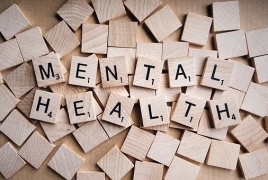Adolescent brain development impacts mental health, alcohol use November 6, 2018 - 13:36 AMT PanARMENIAN.Net - Advances in understanding adolescent brain development may aid future treatments of mental illness and alcohol and substance use disorders. The findings were presented at Neuroscience 2018, the annual meeting of the Society for Neuroscience and the world's largest source of emerging news about brain science and health, Medical Xpress reports. Adolescence is a developmental period characterized by outsized risk-taking and reward-seeking behavior, including first alcohol and drug exposures, as well as the first emergence of symptoms such as depression and anxiety. And yet, much of the research on brain functions related to these conditions is performed on adults. As humans gain a better understanding of adolescence-specific neurological causes of these conditions and behaviors, they increase the potential for early treatments and for interventions even before serious symptoms emerge. Today's new findings show that: A variant in an opioid receptor gene in the brain reduces the natural reward response in young adolescents before they have started using alcohol or other substances, indicating carriers of this genetic variant may be more susceptible to addiction. Childhood trauma impacts the development of critical brain networks during adolescence, elevating the risk for alcohol abuse. The strength of connections between the brain's reward and anti-reward systems corresponds to the severity of several important psychiatric symptoms in adolescents, including anxiety and depression. "The neuroscience advances presented today help expand our understanding of the connections between adolescent brain development and mental health issues, including alcohol and substance use," said press conference moderator Jay Giedd, MD, of the University of California, San Diego, who conducts research on the biological basis of cognition, emotion, and behavior with an emphasis on the teen years. "These advances provide potential new methods to identify young people who have biological susceptibility to addiction and mental illnesses, so we can implement intervention strategies even before problems emerge." Authorities said a total of 192 Azerbaijani troops were killed and 511 were wounded during Azerbaijan’s offensive. In 2023, the Azerbaijani government will increase the country’s defense budget by more than 1.1 billion manats ($650 million). The bill, published on Monday, is designed to "eliminate the shortcomings of an unreasonably broad interpretation of the key concept of "compatriot". The earthquake caused a temporary blackout, damaged many buildings and closed a number of rural roads. Partner news |